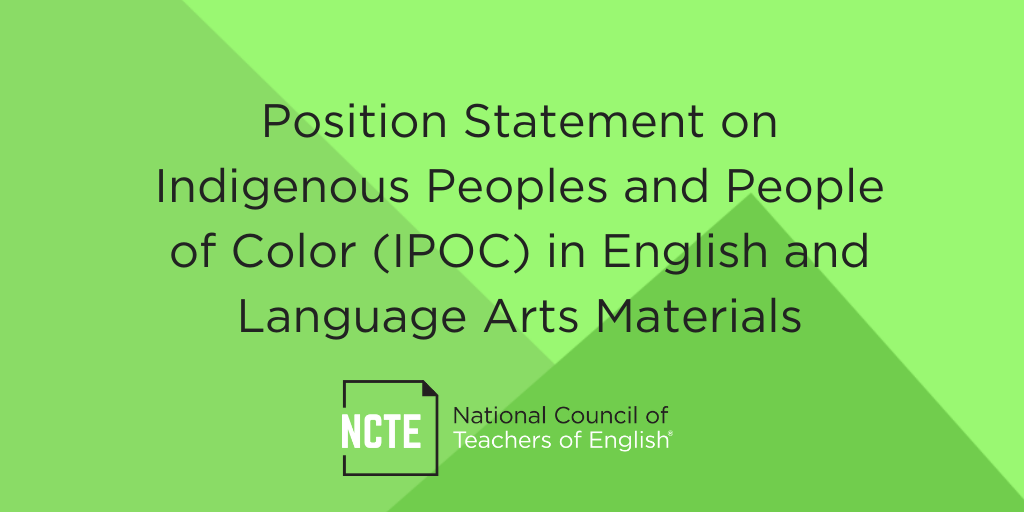Since 1990, November has been known as National Native American Heritage Month. Many organizations such as the Library of Congress and the National Endowment for the Humanities offer rich resources for teachers and take this opportunity to pay tribute to the history and continuing culture of America’s indigenous peoples.
At the same time, we know it’s essential that we weave the voices and contributions of indigenous peoples into our teaching year-round, and also continue to explore how we can counter harmful narratives with accurate information and understandings. As Dr. Debbie Reese of Nambé Pueblo writes, “There are better ways to bring Native stories and books about Native peoples into classrooms.”
The NCTE Position Statement on Indigenous Peoples and People of Color (IPOC) in English and Language Arts Materials is a great resource to have on hand when it comes to curriculum and text selection.
“Indigenous communities and People of Color in the United States, including Native Americans and Alaska Natives, Pacific Islanders, Asian Americans, Blacks, Chicanx, Puerto Ricans, and others, continue to suffer debilitating and systemic discrimination in jobs, housing, civil rights, and education. Part of this discrimination takes place in the form of erasure, and these communities continue to face a school curriculum that, for them, frequently downplays or does not include their communities’ work and contributions.”
We know that resources found in schools should foster the development of attitudes grounded in respect for, and understanding of, the diverse cultures of American society. Educators should audit their curriculum, teaching practices, and available texts. As part of this work, review this list of qualities of anti-racist ELA curriculum compiled by NCTE’s Standing Committee Against Racism and Bias in the Teaching of English (CARBTE).
In November 2019, the CARBTE created a set of resources to be shared with attendees at the National Council of Teachers of English (NCTE) Annual Convention:
- What Anti-Racist Language Teachers Do: Anti-racist language teachers consciously work to create safe learning environments for all students. This poster provides a description of what these teachers do.
- Qualities of Anti-Racist ELA Curricula: Anti-racist curricula must celebrate and sustain diversity as part of educational justice in a changing world. This poster describes the qualities of such curricula.
As each of these heritage months come and go, consider “humanizing practices of seeking to sustain more equitable and just practices within and across classroom and school contexts.”
It is the policy of NCTE in all publications, including the Literacy & NCTE blog, to provide a forum for the open discussion of ideas concerning the content and the teaching of English and the language arts. Publicity accorded to any particular point of view does not imply endorsement by the Executive Committee, the Board of Directors, the staff, or the membership at large, except in announcements of policy, where such endorsement is clearly specified.

